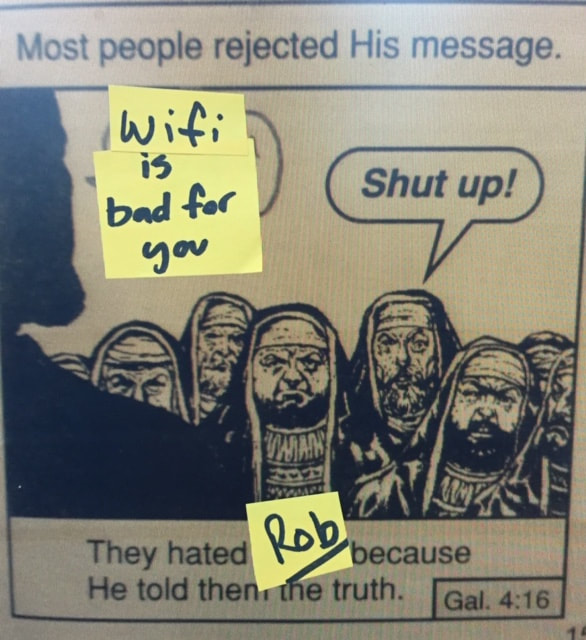Are You Conscious? - Part 12/22/2020 Thoughts On The Breakdown Of The Bicameral MindBefore we get started watch this. Ok, now put that on the shelf for a little while, we'll come back to it. It has been a while since I have written a blog post. I went off social media several months ago and my world has slowly returned to a pre-social media state. I am no longer fixated on a virtual world designed to trick my brain into consuming increasingly more. I now look see FB and Instagram as information porn in a way. In any case, I encourage you to do a 3-6 month social media fast and see how you feel. I have no plans of returning but I feel ready to do a blog post to get some ideas out. I'll just leave it here as I have very rarely gotten much feedback or comments even though this is a desire I've had since the inception of this blog. Ok let's go....Over the past several months I have been diving into a number of different books in an attempt to build a wider knowledge base. I have a decent commute to work and this is the best time for me to have quiet time to soak up audio books that would use more sensory margin and distract me from the topic itself if I were to read them. I retain information much better in audio form (check out audible.com, it is awesome). I have listened to books on child brain development, history, to stoicism, to fiction (Dune), to health and more. It has lead me to finally take on the task of listening to - The Origin of Consciousness in the Breakdown of the Bicameral Mind- by Juilian Jaynes. I say finally because about two years ago I was watching TV (which I don't do often) and wondered why I was drawn specifically to Rick & Morty and Westworld. Why did these two shows attract so much of my attention? Both deal with the origin of consciousness. Rick & Morty involves some very obscure theories. For example, Rick achieves consciousness as a character in a TV show who must be entertaining in order to exist, making him feel like a slave and yet having character immunity so he's unable to kill himself. He often breaks the forth wall to let us know about his conscious state. This theory is not necessarily pulled from the show directly unless you are looking for it. So while everyone else is watching Rick become a pickle or do something funny or bizarre, I watch as if he is trapped in a world where he alone knows the higher state of consciousness he has entered into but is unable to explain it to anyone in the cartoon world he lives in. The other characters either wouldn't be able to handle it or might mess up is ability to exist since Rick has a godlike ego that no one else fully understands in his world. I feel sad for him and am still rooting for him to attain true consciousness to be able to transcend his trap. If you have no idea what I'm referring to, it is a bit like the ending of The Truman Show where he becomes conscious that his reality is a fabrication and people are rooting for him to escape it but as soon as he does the show is over. The clip below seems fitting in understanding this concept. In the back you see a bulletin board of Rick's attempts at tracking and finding a way out of his reality cage. But this scene is after he was dumped by a girlfriend: Unity - who was actually a hive-mind, think Borge from Star Trek. I'll come back to the hive mind concept toward the end of this writting so you may want to keep it in mind. Rick puts the little creature out of its misery and then attempts to do the same to himself but is stopped not by himself or his family but by his character immunity. Kind of a ground hog day scenario where he is unable to kill himself to escape. Rick then remains in the garage and life goes on as if nothing was wrong when in reality all of life in the world of Rick & Morty is contingent upon Rick. So the development of consciousness relates strongly to Rick & Morty for me. The topic of the multi-verse being a set of infinite possible realities existing on other planes is addressed often. Even the TV shows they watch within the show are tuning into reality TV from other realities in the multiverse, which makes the idea of a conscious Rick a possibility as one of the infinite possibilities. In fact, based on that theory all fictions would be alternate realities. Human creativity would spill into two parts: the re-composition of existing ideas and the channeling of a separate multiverse realities with the creator simply acting as a conduit to the reality. Moving on to Westworld. Westworld is tied to the bicameral mind theory much more directly. I could really get into the details of this show that make it very interesting but it ultimately allows us to see how artificial intelligence could become conscious or at least partially bicameral. Check out the show but pay attention to the subtleties of conscious evolution from various perspectives as they require a good amount of thought to keep up with. After initially hearing about the bicameral mind theory as a result of these shows, I immediately bought the book and didn't read it. I had to sit with the idea of bicamerality for a while before I was even able to fully dive in as I knew it would not be an easy read and might shift many of the ideas my subconscious was programmed with as a child, making me contemplate my own consciousness as a result. I recently went on a keto diet, which I like to do periodically. The nice thing about being in ketosis is it allows the brain to run on a slow burning fuel that doesn't cause glucose crashes, so I am in a better place to take on more mental tasks like engaging this theory. The books I had been listening to did a good job of preparing me for the ideas in the bicameral book. This entire topic is extremely difficult to discuss, but here I go since I realize I have been referencing bicamerality without telling you exactly what it is. First know that when I say conscious I am not referring to a waking state verses a sleep state. I am also not referring to what I would call universal consciousness, or what can only be described as the quantum all (the non-physical information space that all material life springs from through the alteration of quantum particles). It could be understood as the "creator" of all things. This "quantum all" is not humanistic and does not care about you any more than a canvas cares about the paint that is put on it. In other words, it doesn't care any more than the number equation of the mandelbrot set cares about the beautiful and complex fractal image it creates. What is behind this? Maybe the multiverse, who knows. Things get tricky when a brain trapped in space and time tries to go outside that perception box. This universal quantum space is the archetype that the voice of god is often assigned to as the "creator". If people say god to me I ask "which one?" since there are so many different deistic ideas that are all called "the high god." It would be like if you know five people named Steve and someone says "hey do you know Steve?" The response would be, "which one are you talking about?" and their response would be "the real one"....? This is not what I am referring to when I refer to god or consciousness. I am talking about human consciousness or being self aware and having inner-narrations to assess situations with reason...to simplify it. When I say god or voice of god I am referring to the inner voice of the externally silent half of the brain giving commands to the speaking side (see or re-watch the video above if this does not make sense). This is in essence the bicameral mind. Relative to the theory, I am less interested in holding to the literal theory but instead mentioning the ideas that have come up for me in reading it. As always, don't absolutize the ideas as all my blogs are less objective fact and more a series of what if's and what I believe at this moment that is always open to change in the future. In fact, I hope it does change as that is the essence of learning and from my perspective learning is improving. I have been on a slow transition away from the religious ideas I was raised with. This seems to complete that transition into atheism, even though I've held onto certain quantum ideas such as the "universal all" mentioned above. In a way, I consider myself some combination of Gnostic and Atheist depending on the use of science as well as the use of archetypes to explain quantum principals. I am not interested in the identity or community that is the real backbone of modern religion. Most religious people refuse to ask the questions that would lead to a breakdown of their own faith based claims. I currently live in California and have had some conversations with non-denonominational protestants that don't seem to care much for anything outside of saying "Jesus is Lord", holding hands and singing kumbaya. I was told I am too cerebral to be saved which I thought was funny. I have also spoken with Mormons and was surprised to find out that it is not a monotheistic religion and that they believe all people referring to god are really referring to their god whether they know it or not. I've watched several atheist debates, and one of the most common explanations of god by a religious person in response to an atheist's denial of god is simply to say "you believe god exists even if you refuse to recognize it." Jordan Peterson used this one in a debate with Matt Dillahunty. I haven't been able to look at Peterson the same way since (I had a lot of respect for him prior). As a former Christian, I attended a Christian college in search for answers and was told to have more faith to which I asked "in what?" I was told ask the Holy Ghost. I paid lots of money for that valuable teaching. I now view these church institutions as businesses getting money and power, profiting off the members of society most closely tied neurologically to partial bicamerality. What does any of this have to do with neuro science and psychology or the bicameral mind? Hopefully you will see by the end. So what exactly is the theory of the bicameral mind? Here is my view so far. The evolution of mind/brain from no mind to two minds (bicamerality) to the creation of a the third non-tangible mind that observes and governs the two: consciousness. Simply put: there was a period of time when instead of having interconnected brain hemispheres, one side spoke internally to the other like a commander or "god" essentially. I like to use biblical references since this is what I was taught as a child but now see the Old Testament as a story through a bicameral lense. Showing the transition from absolute bicamerality to partial bicamerality where in the New Testament, god or Jesus has gone back to heaven and left us to figure out the parables on our own leaving behind the Holy Ghost....individual conscious thought. This is why ten people can be directed by the Holy Ghost and come to ten different conclusions about the same bible verse they read. When I was young I was taught that the creation of the world was the protestant biblical creation story from the group of books assembled by the Catholic church called the bible where the Old Testament came from from the history of the Jews. I will say in my religious upbringing I have never heard the voice of god myself (aka had a bicameral hallucinatory experience), but I remember others telling me they had. There were many times when the right sensory inputs like music, lighting mixed with a bunch of social pressures/ rewards (a big group of people in a room all encouraging full participation in the praise ritual), and a dose of fear (going to hell if your not saved) resulted in me having some emotional experiences but nothing particularly significant. I did manage to get "saved" every year at summer camp just for good measure as I keep sinning or thinking about sinning (which in the Christianity I was raised with was the same thing). Like most Christian children I remember having my doubts. I was told not to look to other books than the bible for answers. I was told not to ask god to speak to me directly as this showed my lack of faith. This type of questioning is frowned on as religion seems to be one big logical fallacy called - the appeal to authority. God is all knowing and all good and doesn't have to explain why he has done such horrible things or allows them to happen because he is the authority, he is god. Read the book of Job. The meaning is don't question the authority even if the authority exists only on a pedestal made out of your own faith/belief. This makes the person the authority as a representative of god. Why am I going into these religious ideas? It is important to re-frame the common perspectives on god to understand the theory as the voice of god has to be understood through bicamerality. This shows that the problems mentioned above with god go away when instead of an omni-present, onmi-powerful, all good, perfect god - it is simply the dominant side of your brain that can not speak to the outside world. You may be thinking "I'm not religious, so this doesn't apply to me." It does because your society and in fact all civilization sprang from one religious tradition or another and all involve the bicameral mind. So many of the conscious and subconscious beliefs and rituals we have in our modern lives are from religious traditions. Many people with power have tried to inflate their power by claiming to be god in history. Your brain is no different and at the same time it longs for integration. It wants to both have connection and be in complete control. Don't we all. This doesn't often work and history shows that it did not work for the bicameral mind either as time has interconnected the two halves of the brain and the "god" voice is gone, replaced by consciousness itself. The brain has not evolved away the space in the physical brain that can speak to us inside our heads. This shows that it is still useful or that we have only recently in our evolutionary past transitioned out of using it. It is still there but like the god that left to early man it has gone silent. The book states that when we electrically stimulate this part of the brain, it causes many people to hear voices. Go To Part 2
Parts 3 and 4 to follow
0 Comments
Leave a Reply.Health Blog LibraryAuthorRob Alexander is on a journey to learn not just about health but everything else. Archives
February 2024
Categories
All
|
This website does not provide medical advice.
The information, including but not limited to text, graphics, images and other material contained on this website are for informational purposes only. The purpose of this website is to promote broad consumer understanding knowledge of various health topics. It is not intended to be a substitute for professional medical advice, diagnosis or treatment. Always seek the advice of your physician or other qualified Health care provider with any questions you may have regarding a medical condition or treatment and before undertaking a new health care regimen. Never disregard professional medical advice or delay in seeking it because of something you have read on this website.

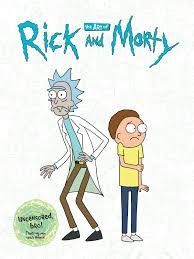

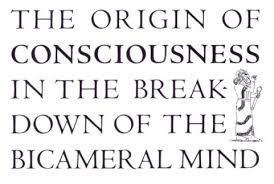
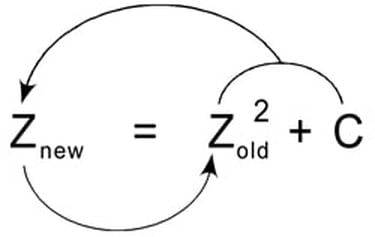
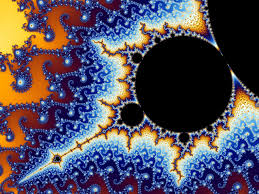

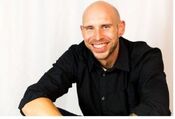

 RSS Feed
RSS Feed
